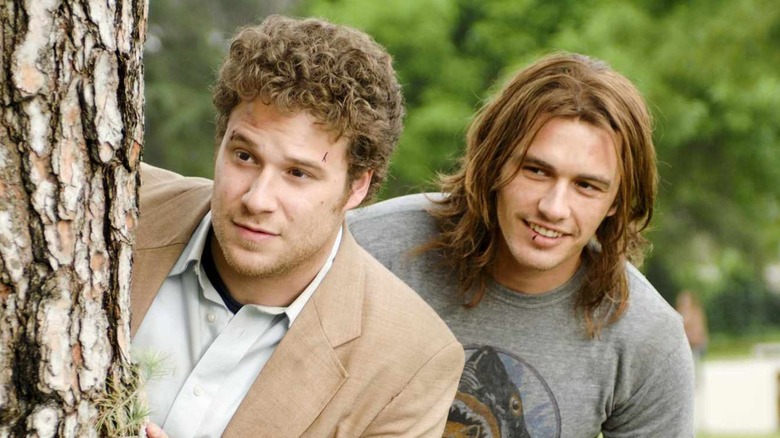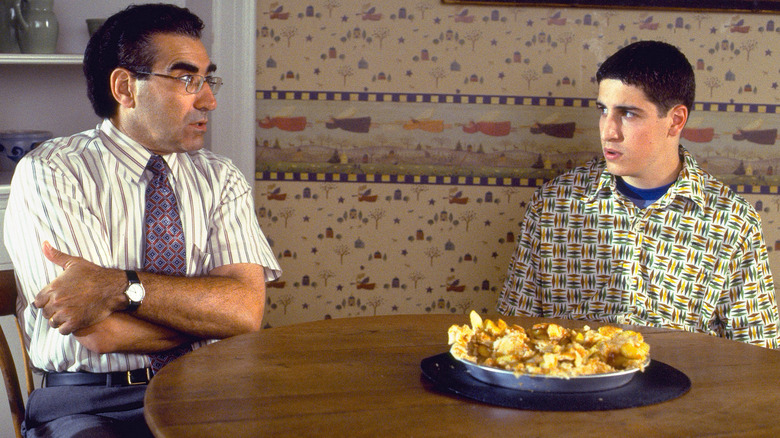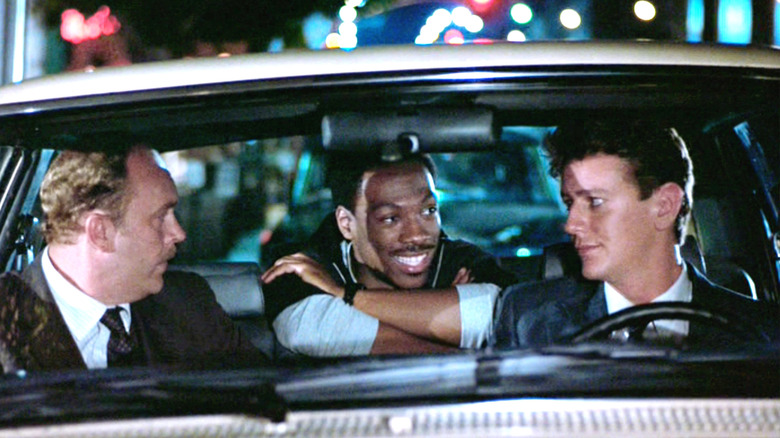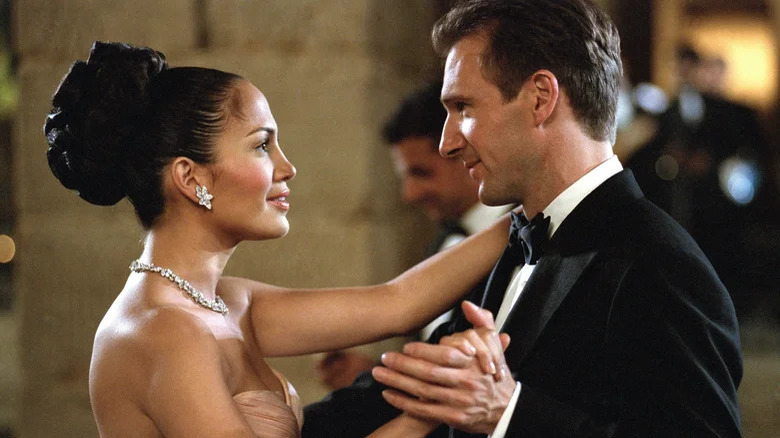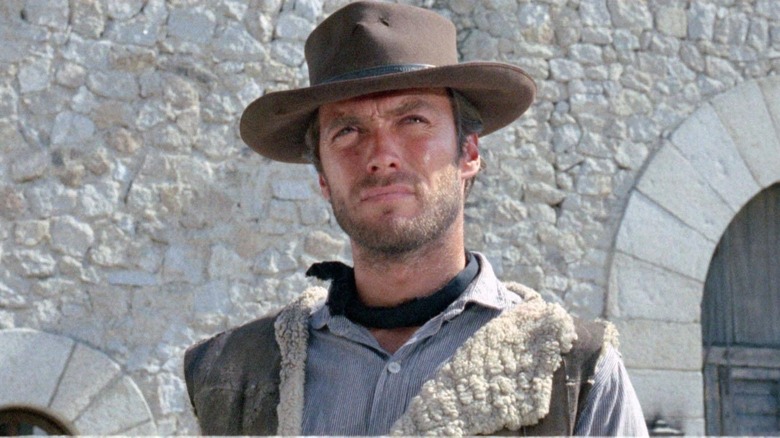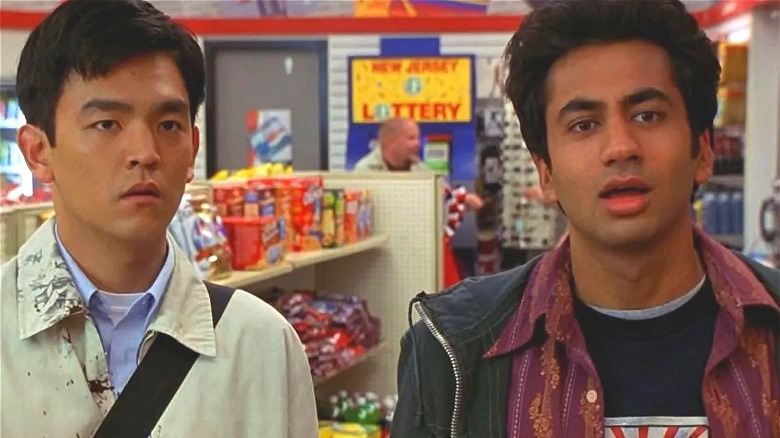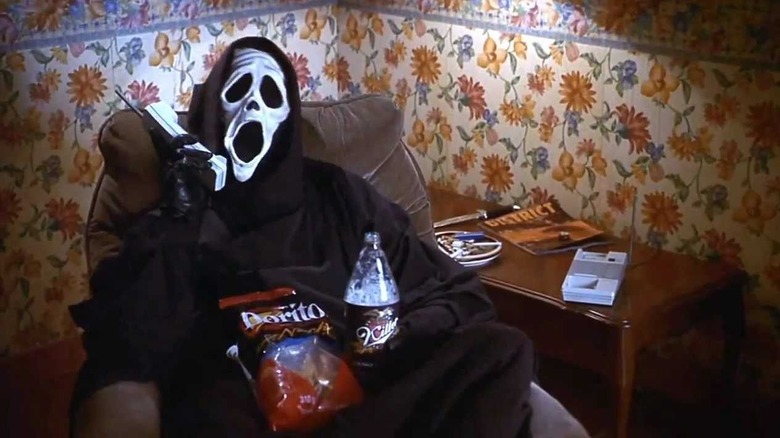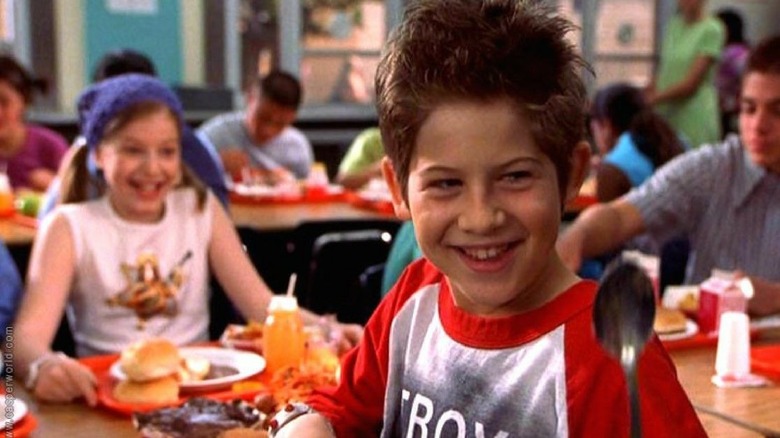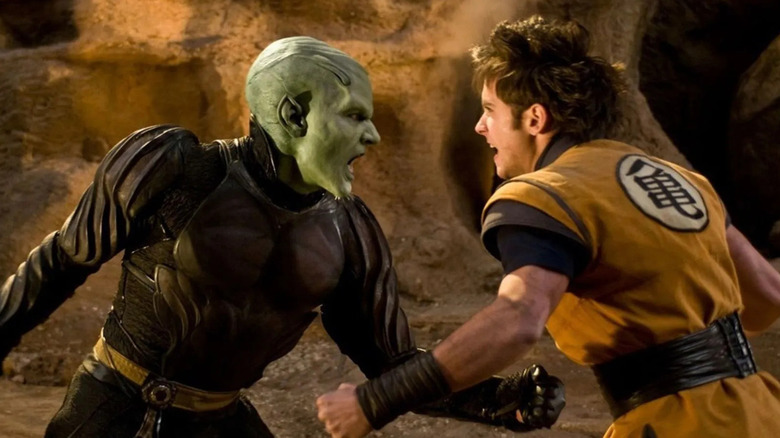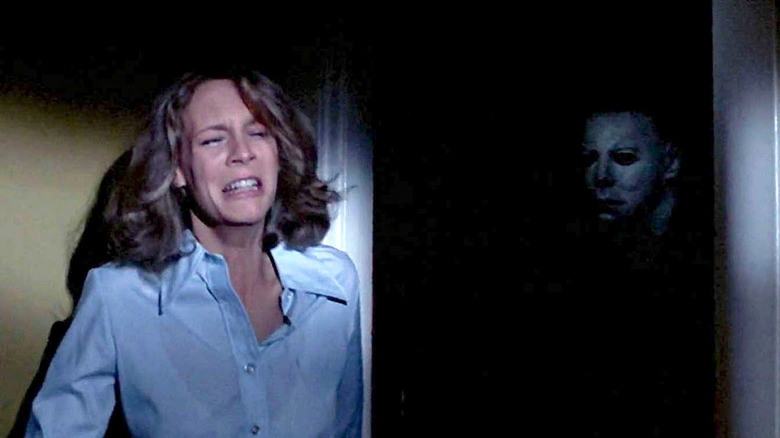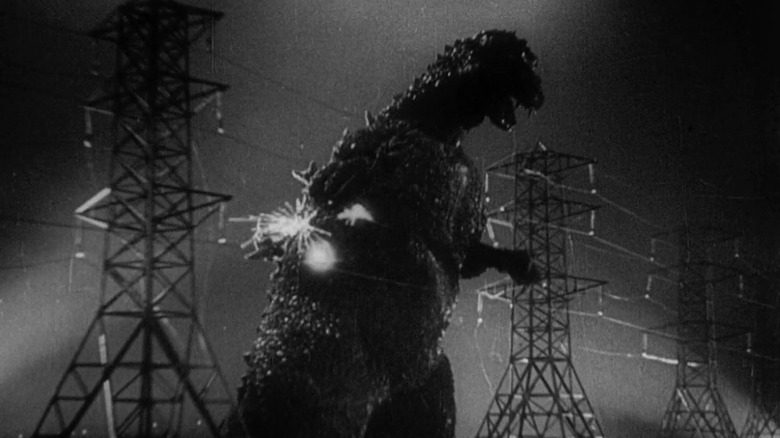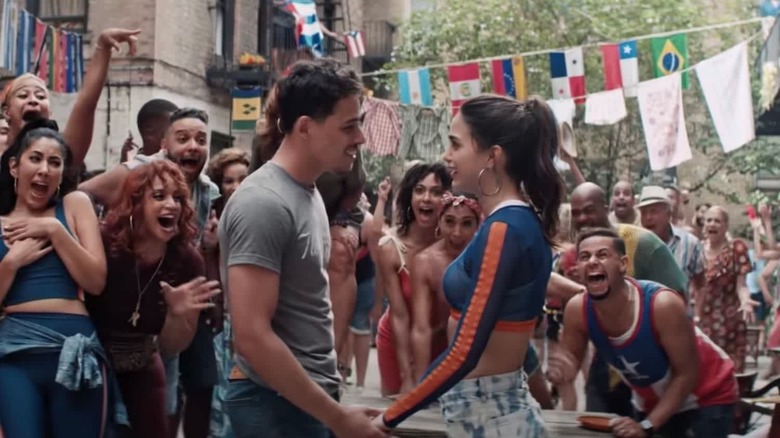11 Genres Hollywood Hardly Seems To Make Anymore
Nothing lasts forever in Hollywood, especially when it comes to various genres and sub-genres. Sometimes trends emerge that result in a specific genre gaining traction in Tinseltown. A prime example is the still ongoing comic book and superhero movie boom, largely championed by the runaway success of the Marvel Cinematic Universe. However, people are already speculating as to when the comic book movie bubble will burst – there's been a noticeable over-saturation of content over the past decade, and some commentators believe the wheels will come off before too long.
Will superhero films one day go the same route as classic Westerns, mostly relegated to being relics of a bygone era? Only time will tell, but if history has taught us anything, it's that no genre is bulletproof. Whether it was due to a lack of financial returns or changes in audience sentiment, there are several movie genres that are pretty much extinct nowadays. Here are 11 genres Hollywood hardly seems to make anymore.
Gross-out comedies
What people found funny a decade or two ago would make most people cringe these days. Similarly, things that were seen as shocking and irreverent at the time might be considered tame now. Not that long ago, comedies tried to be as crude and as lewd as possible. A perfect example is 1999's "American Pie," a film that, though not the first of its kind, proved that raunchy gags can result in ample box office profits.
After "American Pie," heaps of imitators began flooding theaters and the home video market, all looking to make some coin with crude humor. From sexual misunderstandings to various bodily fluid-based gags, for a good while, gross-out comedies were a Hollywood standard. However, as the years have gone by, gross-out comedies simply aren't as shocking as they once were, no doubt due to people largely simply being desensitized.
In a world where offensive jokes and toilet humor are a Google search away, there's very little reason to flock to theaters for them anymore. That's not to say they've gone fully extinct — there are still comedy films that look to push boundaries and challenge good taste. However, aside from the occasional hit like "Blockers" or "Good Boys," the spigot has run dry for gross-out comedies.
Cop movies
For a long time, cop movies were a key cinematic staple, right alongside romantic comedies and slasher movies. Police officers, at one point, were an easy sell for studios. From the young rookie being paired with a grizzled veteran to cops teaching kindergarten, the sub-genre was rife with variations. After "Dragnet" cemented the idea of police officers as heroic protagonists in the 1950s, cop movies and television shows became a key staple of the pop culture landscape. It remained that way for decades, but things have changed in recent years.
In the real world, especially in the age of social media, people have become far more critical of the police and their actions. This means that portraying police officers as virtuous, often infallible heroes of the people definitely doesn't play the same as it once did. Nowadays, if a cop film is released, the focus is often on how incompetent the officers in the story, like in "21 Jump Street" or "The Heat." Even cop shows on TV are starting to change their ways. "'Brooklyn Nine-Nine' develops much of its conflict by pitting its well-meaning progressive protagonist cops against the more conservative members of the NYPD," Vox points out.
Romantic comedies
While not outright gone, it wouldn't be unfair to say that romantic comedy films aren't as prevalent as they once were. If you go to the cinema frequently enough during the average year you'll still likely see a spattering of romcoms. However, compared to their frequency during the '90s and '00s, their output flow has mostly staggered to a mild trickle.
The formula is usually the same — boy meets girl, they fall in love and then breakup, usually through some comically annoying misunderstanding, before professing their love in grand fashion. This time-tested template has been applied to hundreds of onscreen couples, resulting in just as many good films as bad ones.
However, as time has gone by, it really feels as though romantic comedies are among a dying breed, at least in cinemas. Look towards the likes of the Hallmark Channel and you'll still find a whole host of romantic comedies, especially around the holidays. In theaters, however, it's slim pickings. Sadly for fans of feel-good cinema, it appears that romcoms aren't as viable in a theatrical setting as they once were.
Westerns
For young people today, it's probably hard to imagine that there was a time when cowboy movies were all the rage. Not only that, but they were big money makers in theaters and on television, with some of the biggest stars of yesteryear making their mark in Westerns. They were extremely popular during the silent film era of the late-1800s and early-1900s, and there was another boom in the 1950s. However, as film developed, both in terms of production size and technology, Westerns began to fade into the background.
Since then, Westerns have infrequently popped up here and there to reclaim a bit of their former glory. The Spaghetti Western subgenre (Westerns made in Europe, usually Italy) was a big thing in the '60s and '70s, due in large part to the work of director Sergio Leone and his "Dollars Trilogy." Then in the '90s there was George P. Cosmatos' "Tombstone," which boasted a star-studded cast and was adored by audiences. Sadly, aside from the occasional high profile project from the likes of Quentin Tarantino ("The Hateful Eight") or the Coen brothers ("True Grit"), Westerns are just not that popular in Hollywood anymore.
Stoner movies
As marijuana use becomes more socially acceptable in the United States and around the world, the image of people who use it has shifted. This seems to have been the nail in the coffin of the stoner comedy, which for a time was widespread in Hollywood.
Early classics like 1978's "Cheech & Chong's Up in Smoke" led to moviegoers developing a fondness for the misadventures of pot-smoking burnouts. After that, every decade seemed to have at least one quintessential weed film. Character's like Sean Penn's Jeff Spicoli from 1982's "Fast Times at Ridgemont High" and Chris Tucker's Smokey from 1995's "Friday" carved out places in popular culture.
This trend continued into the 2000s with films like "Harold & Kumar Go to White Castle" and "Pineapple Express," but these films were part of a final batch of stoner comedies in Hollywood. As pot has seen varying degrees of legalization in several states, the counterculture status of cannabis has diminished. So, aside from the occasional nostalgia project like "Jay and Silent Bob Reboot," it appears that the stoner comedy has mostly gone up in smoke.
Spoof movies
Spoof movies, in the right hands, can be great. Just look at the likes of "Blazing Saddles," "Spaceballs," and the "Airplane" movies for proof of that. However, the common theme with those films is that they are all still hilarious, even if you know nothing about what's being spoofed. It certainly helps to have seen "Star Wars" prior to watching "Spaceballs," but it doesn't hinder your viewing experience in any real way. That's worth noting, as, somewhere along the way, spoof movies really seemed to lose that evergreen quality.
The main culprit of this, even if unintentionally, is "Scary Movie," a parody of "Scream" and various other bits of '90s media. The film's humor is heavily entrenched in not just spoofing "Scream," but capitalizing on anything and everything that was popular around the time of its release. This effective yet cynical template soon became the norm for modern parody movies, with a heavy emphasis on lampooning things relevant during their production. This resulted in less than stellar, often one-note parodies such as "Epic Movie," "Disaster Movie," and "Meet the Spartans." Nowadays, spoof movies appear to be pretty much defunct, barring the occasional critical misfire like "Meet the Blacks" (a parody of "The Purge").
Kidz Rule movies
One thing that should be clear by now is that Hollywood loves a good trend. Kids movies have always been a thing, but during the '90s and '00s, a batch of comedies about and featuring kids began to saturate the market. It arguably began with the success of "Home Alone" and snowballed from there, with films like "Matilda," "Richie Rich," "Max Keeble's Big Move," and "Snow Day" all containing variations of kids standing up to the evils of adulthood.
Whether it's rising up against tyrannical school teachers or fighting back against comically oppressive parents, it really felt like kids were soldiers in some kind of war. Instilling confidence in children is indeed important, but it's pretty hard to look back on these types of movies and not laugh and cringe simultaneously. Thankfully, this subgenre of kids media has largely died off. The last few embers of this dying flame can be seen in the "Diary of a Wimpy Kid" movies.
Theatrical anime adaptations
In recent years, there's been much talk in regards to the video game movie curse having finally been broken. Films and shows like "The Super Mario Bros. Movie" and "The Last of Us" have proven that video games, when adapted properly, can result in big box office and ample critical praise. Unfortunately, the same cannot be said for anime adaptations.
Anime adaptations are often subject to ample scrutiny, even more so when handled by non-Japanese creators. This trend of Americanized anime adaptations has resulted in the likes of the critically panned "DragonBall Evolution" and "Ghost in the Shell." These films, often hamstrung by miscasting and whitewashing, have resulted in less than stellar reviews. It's not hard to understand why, as live-action simply can't recapture the same energy and timing of anime.
For the time being, these live-action adaptations have seemingly moved over to television and streaming, with Netflix even hyping a "One Piece" adaptation for late-2023. Based on how poorly the streaming giant's live-action versions of "Death Note" and "Cowboy Bebop" were received, fans of "One Piece" probably aren't expecting much.
Slasher movies
Following the smash hit that was John Carpenter's "Halloween," Hollywood smelled blood in the water and jumped on the trend. Throughout the 1980s you could throw a dart at a list of movies out in a given month and easily find a new slasher film. There are plenty of big names, from "Friday the 13th" and "A Nightmare on Elm Street" to "Child's Play." For many horror fans, the slasher sub-genre is a beloved fixture, right alongside other classics like zombie movies and body horror.
From hotels to hospitals to high schools, slashers seemed to pop up in just about every conceivable location one could think of for a while. In addition, we got ridiculous antagonists including the Driller Killer from "Slumber Party Massacre 2," a rock'n'roll tinted slasher with a guitar as a weapon. This over-saturation of subpar movies, in conjunction with the ever-evolving horror landscape, meant that slasher films became increasingly less frequent. By the time the '90s came around, the subgenre was so tired that films like "Scream" even riffed on various slasher tropes.
Slashers are a rarity nowadays, although the "Scream" franchise is back with another entry — "Scream VI," which has been a hit at the box office and with critics. They're still rare for the time being, but this belated sequel may change that.
Giant monster movies
The horror genre is as popular as ever in Hollywood. However, aside from a few scant examples, one horror sub-genre that is noticeably in short supply is kaiju movies — or giant monster movies. Giant monsters have been a part of cinema since the early days, going back as far as "The Lost World" from 1925 and "King Kong" from 1933. Moviegoers have seemingly always had an affinity for skyscraper-dwarfing creatures who can lay waste to cities, and who can blame them? It's entertaining stuff.
When it comes to giant movie monsters, there are perhaps none more well-known and beloved than Godzilla, the king of the monsters. For years, Godzilla and his kaiju kin pulled in big bucks at the box office and became pop culture fixtures. However, aside from Godzilla's ongoing film series featuring King Kong, giant monsters have pretty much become extinct in movie theaters. While Godzilla and King Kong still being around is awesome, it would be nice to see Hollywood craft some new giant monsters for the current generation.
Musicals
Movie musicals, at one time, were as frequent in their releases and as grand in scale as modern superhero movies. Music and film have always gone hand in hand with each other, almost since the very beginnings of cinema. During their peak, silent movies would often have a live musical accompaniment, usually provided through a sizable in-house organ. So, when sound technology was incorporated into filmmaking, it didn't take too long for movie stars to start singing.
Following the success of 1927's "The Jazz Singer," movie musicals began popping up with greater frequency. What's amazing is, even if you aren't a fan of movie musicals, there's still a good chance you've seen at least one. From "My Fair Lady" to "West Side Story" to "The Sound of Music," there are so many to choose from. Sadly, as time has gone by, movie musicals have become far less frequent, especially compared to previous decades. Even the ones that do make it to theaters don't always succeed financially, with films like "In the Heights" underperforming at the box office.
